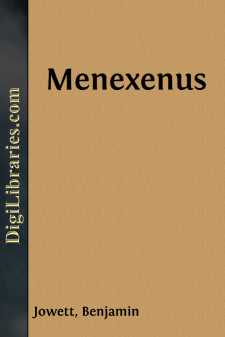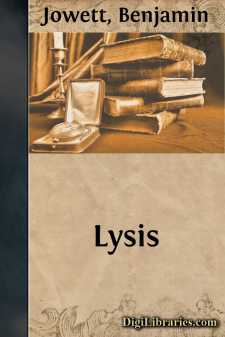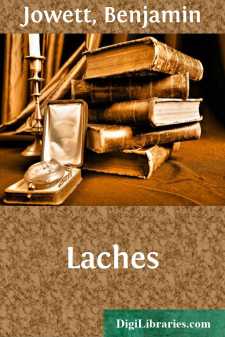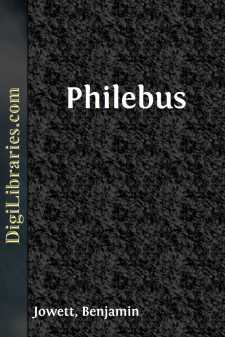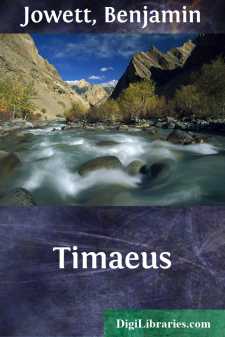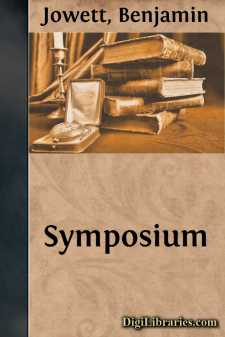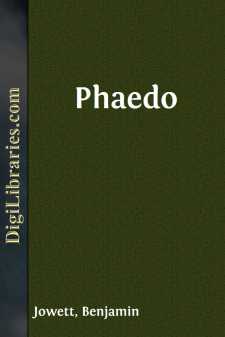Categories
- Antiques & Collectibles 13
- Architecture 36
- Art 48
- Bibles 22
- Biography & Autobiography 813
- Body, Mind & Spirit 142
- Business & Economics 28
- Children's Books 16
- Children's Fiction 13
- Computers 4
- Cooking 94
- Crafts & Hobbies 4
- Drama 346
- Education 46
- Family & Relationships 57
- Fiction 11829
- Games 19
- Gardening 17
- Health & Fitness 34
- History 1377
- House & Home 1
- Humor 147
- Juvenile Fiction 1873
- Juvenile Nonfiction 202
- Language Arts & Disciplines 88
- Law 16
- Literary Collections 686
- Literary Criticism 179
- Mathematics 13
- Medical 41
- Music 40
- Nature 179
- Non-Classifiable 1768
- Performing Arts 7
- Periodicals 1453
- Philosophy 64
- Photography 2
- Poetry 896
- Political Science 203
- Psychology 42
- Reference 154
- Religion 513
- Science 126
- Self-Help 84
- Social Science 81
- Sports & Recreation 34
- Study Aids 3
- Technology & Engineering 59
- Transportation 23
- Travel 463
- True Crime 29
Menexenus
by: Benjamin Jowett
Description:
Excerpt
APPENDIX I.
It seems impossible to separate by any exact line the genuine writings of Plato from the spurious. The only external evidence to them which is of much value is that of Aristotle; for the Alexandrian catalogues of a century later include manifest forgeries. Even the value of the Aristotelian authority is a good deal impaired by the uncertainty concerning the date and authorship of the writings which are ascribed to him. And several of the citations of Aristotle omit the name of Plato, and some of them omit the name of the dialogue from which they are taken. Prior, however, to the enquiry about the writings of a particular author, general considerations which equally affect all evidence to the genuineness of ancient writings are the following: Shorter works are more likely to have been forged, or to have received an erroneous designation, than longer ones; and some kinds of composition, such as epistles or panegyrical orations, are more liable to suspicion than others; those, again, which have a taste of sophistry in them, or the ring of a later age, or the slighter character of a rhetorical exercise, or in which a motive or some affinity to spurious writings can be detected, or which seem to have originated in a name or statement really occurring in some classical author, are also of doubtful credit; while there is no instance of any ancient writing proved to be a forgery, which combines excellence with length. A really great and original writer would have no object in fathering his works on Plato; and to the forger or imitator, the 'literary hack' of Alexandria and Athens, the Gods did not grant originality or genius. Further, in attempting to balance the evidence for and against a Platonic dialogue, we must not forget that the form of the Platonic writing was common to several of his contemporaries. Aeschines, Euclid, Phaedo, Antisthenes, and in the next generation Aristotle, are all said to have composed dialogues; and mistakes of names are very likely to have occurred. Greek literature in the third century before Christ was almost as voluminous as our own, and without the safeguards of regular publication, or printing, or binding, or even of distinct titles. An unknown writing was naturally attributed to a known writer whose works bore the same character; and the name once appended easily obtained authority. A tendency may also be observed to blend the works and opinions of the master with those of his scholars. To a later Platonist, the difference between Plato and his imitators was not so perceptible as to ourselves. The Memorabilia of Xenophon and the Dialogues of Plato are but a part of a considerable Socratic literature which has passed away. And we must consider how we should regard the question of the genuineness of a particular writing, if this lost literature had been preserved to us.
These considerations lead us to adopt the following criteria of genuineness: (1) That is most certainly Plato's which Aristotle attributes to him by name, which (2) is of considerable length, of (3) great excellence, and also (4) in harmony with the general spirit of the Platonic writings....


